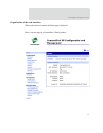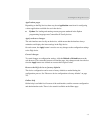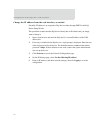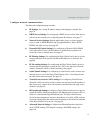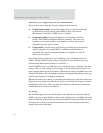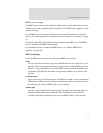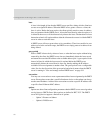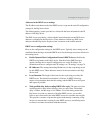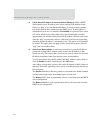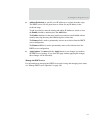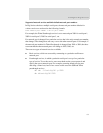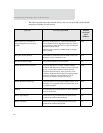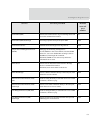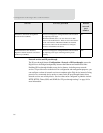
79
Configure Digi devices
Addresses in the DHCP server settings
The IP address and subnet mask of the DHCP server's scope are the static IP configuration
settings for the Digi device itself.
The default gateway (router) provided to a client with the lease information is the IP
address of the Digi device.
The DNS servers provided to a client with the lease information are the DNS server
addresses configured in the Digi device. These addresses include any DNS server
addresses that the Digi device acquires when it connects to the mobile network.
DHCP server configuration settings
Here are the configuration settings for the DHCP server. Typically, these settings can be
modified without having to restart the DHCP server for the changes to become effective in
the running server.
Enable Dynamic Host Configuration Protocol (DHCP) Server: Enables the
DHCP server feature on this Digi device. Note that for the DHCP server to
operate, the Digi device must be configured to use a static IP address. For
information on how to configure static IP settings, see "IP settings" on page 76.
IP Addresses: The starting and ending IP addresses for the scope being served
by this DHCP server. These addresses must be in the same subnet as the Digi
device itself.
Lease Duration: The length of the leases for the scope being served by this
DHCP server. The default lease duration is 24 hours. A DHCP client may
request a lease duration other than this setting, and the DHCP server will grant
that request if possible.
Wait specified delay before sending DHCP offer reply: The interval of time
in milliseconds to delay before offering a lease to a new client. The default
delay is 500ms, and the range is 0 to 5000ms. Use of this delay permits this
Digi device to reside on a network with other DHCP servers, yet not offer
leases to new clients unless the other DHCP servers do not make such an offer.
This provides a measure of protection against inadvertently connecting a Digi
device to a network that is running its own DHCP server(s), and offering leases
to clients in a manner inconsistent with that network.



